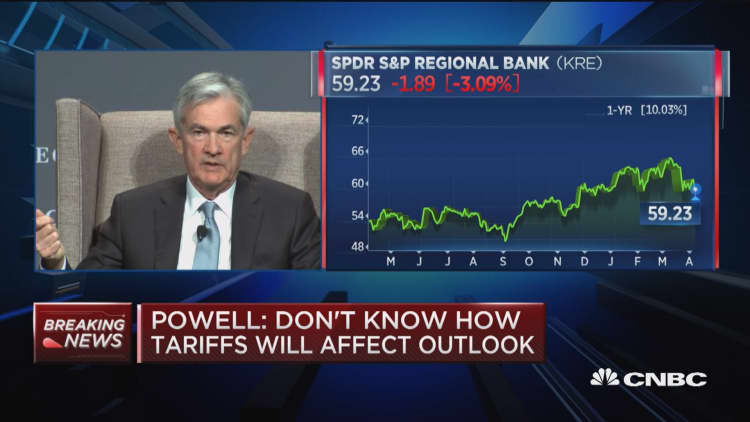Big Wall Street banks have found a way to continue funneling money to high-risk borrowers — by lending to other institutions who make the so-called subprime loans.
Wells Fargo, Citigroup and others pushed $345 billion to nonbank lenders, sometimes called "shadow banks," from 2010 to 2017, according to a Wall Street Journal analysis published Tuesday.
Since the financial crisis, banks have gotten out of the subprime business as regulators have pushed for institutions to lower their risk profiles. One way to continue in the business has been by serving as a third party to the loans.
Banks insist that the loans are safer than direct subprime transactions. Wall Street was burned during the crisis when a wave of high-risk borrowers defaulted and caused securities that bundled the loans together to collapse.
Direct lending to high-risk borrowers has dropped sharply over the years. In the fourth quarter of 2017, mortgages to borrowers with credit scores of less than 620 amounted to $20.4 billion, according to Federal Reserve data. At the peak of the crisis in the first quarter of 2007, that total was $114.6 billion.
Bank executives told the Journal that lending to nonbanks limits their exposure. However, one big recipient of these funds, Exeter Finance, services customers with an average credit score of 570.
Exeter CEO Jason Grubb told the Journal that the firm's clients have "consistently strong credit performance" and that "banks are well protected" from risk.
The company received a $1.4 billion credit line from Wells, Citigroup, Barclays and Deutsche Bank.
"It's very easy for people to deceive themselves over whether risk has migrated," Marcus Stanley, policy director at Americans for Financial Reform, told the Journal.
Read the full Journal story here.
WATCH: Fed Chairman Jerome Powell on the state of U.S. banks.



